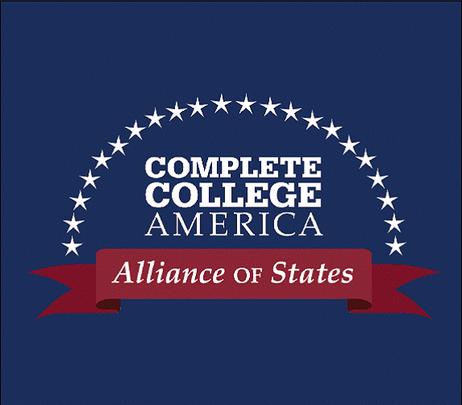Community colleges have traditionally adopted an all-inclusive policy when it comes to the students who want to earn an associate degree or professional certificate after high school. Unfortunately, the willingness to let all students into the programs, regardless of their high school academic records, has left many community colleges across the country with dismal completion rates, compared to many of the four-year institutions that carefully screen applicants prior to admittance. Some schools have met this problem head-on, developing remedial programs that actually work to keep college student in school until graduation. Some of the states where these schools are located recently received a financial boost from Complete College America, a non-profit organization solely committed to increasing community college completion rates nationwide.
The Problem in Texas
Texas is one of the states in the country that has struggled with getting community college students all the way to graduation. According to a report in the Texas Tribune, 48 percent of community college students in the state require some form of remedial education or additional assistance to get up to speed academically so they can handle the rigors of higher education. Nearly 38 percent of those students do not measure up in their math skills when they graduate from high school – a fact that directly impacts a student’s ability to succeed in college. To help many of these students, colleges currently offer remedial math classes to bring them up to par. However, remedial coursework has not proven effective to date; according to a report at My San Antonio, only two percent of students who enroll in remedial math courses actually complete a college-level math course after two years.
“It’s long past time for bold innovation,” Stan Jones, president of Complete College America told My San Antonio. “Gov. Perry gets it. Doing more of the same will not boost student success or get Texas the additional college graduates it must have to be competitive.”
The problem in Texas is much more than an academic one. According to a recent study conducted by Georgetown University and reported in the Texas Tribune, more than half of all the jobs in the state will require some sort of college degree by the year 2018. State leaders are looking at this study and realizing that more college graduates are necessary if Texas is to enjoy a robust economy and competitive market place over the next few years. The state has a vested interest in establishing programs at community colleges that will actually be effective in helping students successfully earn degrees within a reasonable time frame.
The Proposed Solution
This realization prompted the introduction of an innovative new program in 2008, created by Selina Vasquez Mireles, a mathematics professor at Texas State University. Mireles found that when students were able to combine remedial math courses with credit-bearing courses, their odds of success increased considerably. The biggest factor that increased student completion rates was simply the fact that students could still earn a degree within a reasonable period of time, while taking remedial courses that helped them perform well academically in their credit classes. The program was a key variable in the $1 million grant provided to the state of Texas by Complete College America. This grant will allow the state to expand Mireles’ program into 15 community colleges throughout the state.
“We must do all we can to help [students] earn the degree,” Brian McCall, chancellor of the Texas State University System told My San Antonio. “To do otherwise simply wastes the state’s money, the student’s money and time, and causes us to be complicit in destroying their dreams.”
The grant comes at a key time for Texas schools. With tight state budgets and dwindling funding, many schools across the state have been forced to consider cuts on remedial education programs because there simply is not enough money to go around. While the Texas Higher Education Coordinating Board was doing everything in its power to make developmental programs a priority, no one was exactly sure how deeply recent budget cuts would impact these programs.
“We are in critical need of [funding] right now because some of the programs that were helping us close the gaps and deal with developmental education have been cut,” state Rep Donna Howard (D-Austin) said of the new grant. Chairman of the Texas Higher Education Coordinating Board, Fred Heldenfels, agreed. Heldenfel told the Texas Tribune, “We were pretty happy to come out with what we did. But this grant just about makes us whole again.”
Arkansas also Getting Grant Funding
Another state to benefit from the Complete College America funding this year is Arkansas. According to a report at Carroll County News, the state received a $1 million grant to raise college graduation rates across the state. Arkansas had recently passed legislation to tie higher-education funding to course completion and offer more remedial education programs to students who need extra help. These programs were instrumental in the awarding of grant money to Arkansas, and the money will be used to further expand the programs that have already been put in place in the state to raise college completion rates across the board.
About Complete College America
Complete College America is a non-profit organization specifically created to help colleges raise completion rates across the country. The organization is committed to finding solutions and providing funding the colleges across the country to increase college completion and close the gap for underrepresented populations, according to the organization’s website. Funding for the grants comes from the Bill and Melinda Gates Foundation, as well as other funders.














